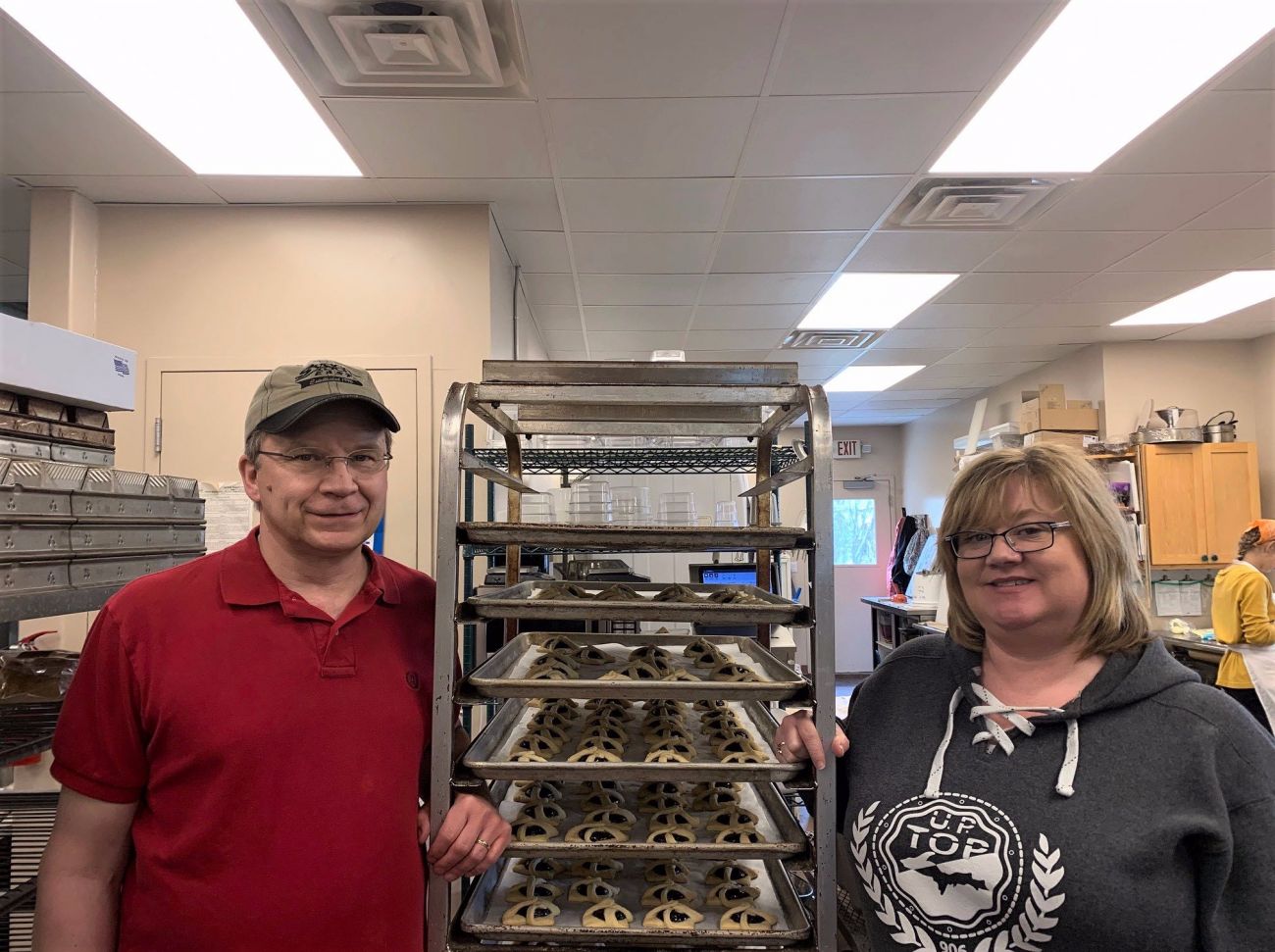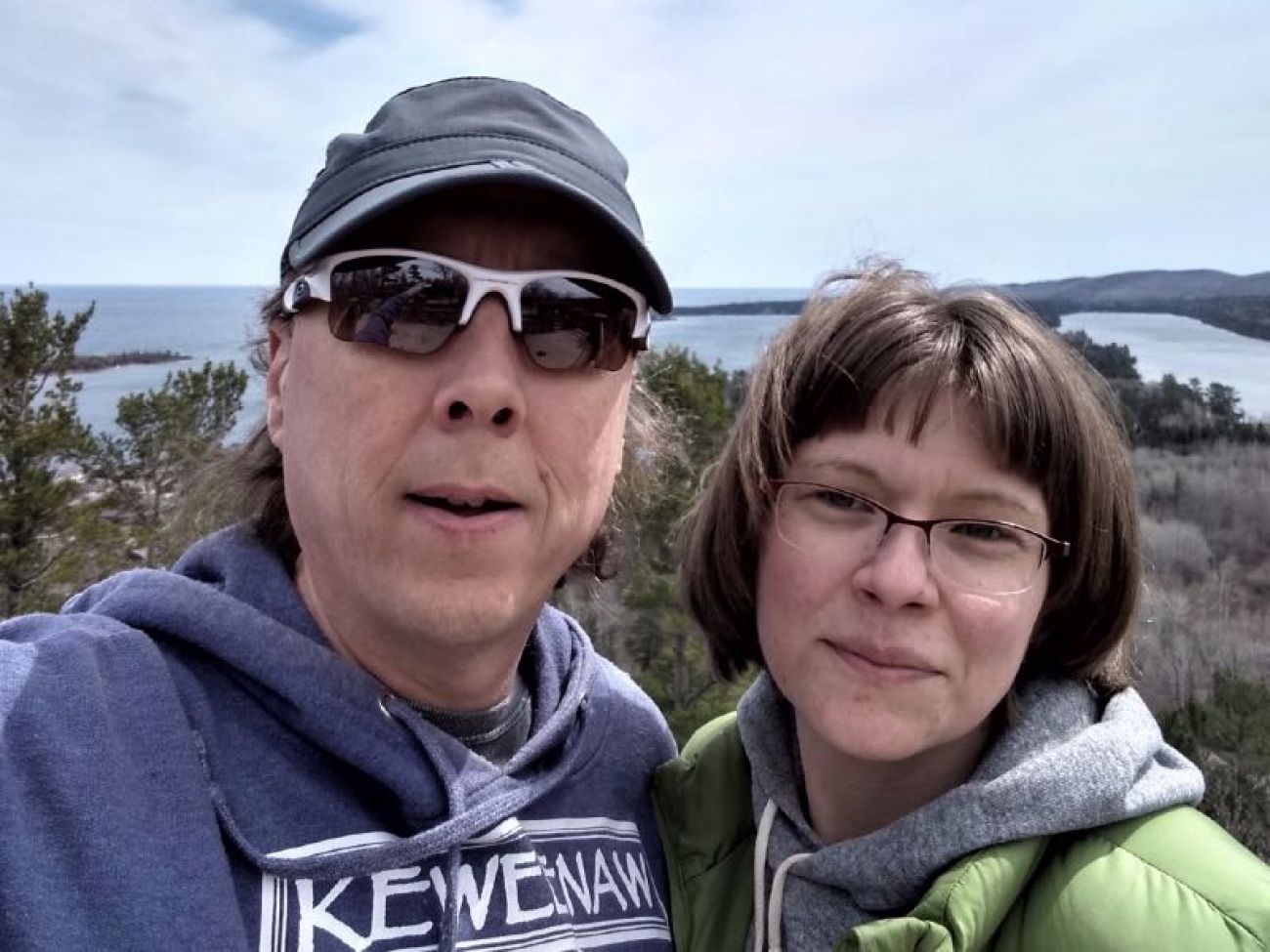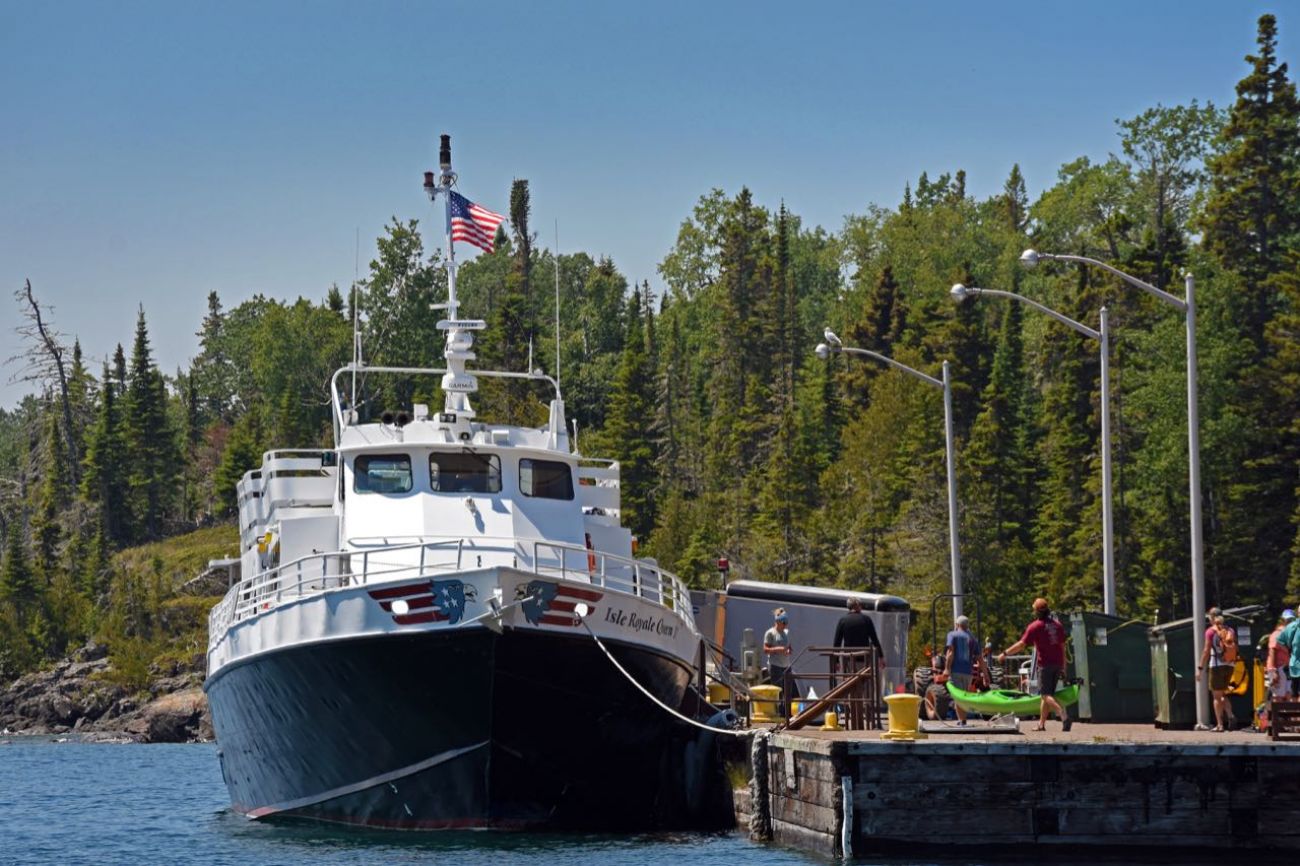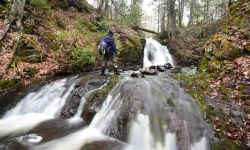Coronavirus has spared the Keweenaw Peninsula but may kill summer tourism

About 600 miles from southeast Michigan, residents of the remote Keweenaw Peninsula face a dilemma.
So far, they have not suffered a single confirmed death from COVID-19.
And yet Keweenaw, like much of the Upper Peninsula economy, hinges on thousands of visitors from metropolitan Detroit and places beyond bringing tourism dollars to their bed-and-breakfasts, pasty and jam shops and guided kayak trips along the shores of Lake Superior.
When the economy opens, Trisia Narhi of Roy’s Pasties & Bakery in Houghton said she will take her chances on whether these travelers bring the coronavirus with them.
- The latest: Michigan coronavirus map, curve, chart, updated COVID-19 news
- Dashboard: Michigan coronavirus testing numbers, trends, COVID-19 data
- Gov. Whitmer extends Michigan coronavirus stay-at-home order to May 28
- Whitmer reopens Michigan from coronavirus in phases: What that means to you
“There’s always a concern,” she told Bridge. “We’ve been lucky that our area hasn’t been affected like the other parts of the state.”
That is an understatement. While the metro Detroit counties of Wayne, Oakland and Macomb account for more than 33,000 COVID-19 cases and 3,800 deaths, Houghton County has but two confirmed cases and no deaths; Keweenaw County doesn’t even have a reported case.
Which helps explain why Gov. Gretchen Whitmer issued an executive order Monday that will allow restaurants, bars and retail stores in the U.P and part of the northern Lower Peninsula to open Friday. But the order restricts customers to 50 percent of seating capacity and does not yet allow hotels or Airbnb-type rentals to open, which may mean many visitors won’t make the drive this summer.
Narhi said she found the customer limit “disappointing” and wondered if places can make a profit with limited seating.
If the region doesn’t get its normal summer visitor invasion?
“It probably means we don’t survive, at least not long term.”
Summer or bust
It’s hard to overstate what tourism means to an economy once built on a mining industry that played out many decades ago. Roughly 70 percent of jobs in Keweenaw County now are tied to the tourism industry, and 10 percent in Houghton, according to the Michigan Economic Development Corp.
“It’s simple,” said Brad Barnett, executive director of the Keweenaw Convention and Visitors Bureau. “For a lot of our businesses, summer is what makes them profitable or not.”
According to MEDC, 2018 visitor spending reached $71 million in Houghton County for lodging, bars and restaurants, retail, recreation and transportation. It totaled $22 million in Keweenaw County.
While that may not sound like much, those dollars go a long way in counties with a total population under 40,000 ─ especially in Keweenaw, with a population just over 2,000, or just four people per square mile.
It’s a microcosm of what tourism means to wide swaths of the Upper Peninsula, stretching as far east as Mackinac County, where the industry accounts for 43 percent of jobs.
Bob Thomas, CEO of the Michigan Chamber of Commerce, said it would be a “huge blow” if the summer tourist season in Michigan fails to get off the ground.
“This is a huge threat to main street business,” he said.

While Whitmer argues that COVID-19 cases and deaths continue to dictate caution in reopening the economy too soon, the chamber has portrayed the governor as too timid.
Chamber Executive Director Rich Studley called Whitmer’s new executive order a “step in the right direction.”
But he told Bridge: “We hope it’s not too little, too late to save many of the retail and seasonal businesses. We think other regions should have been included” in the order, he told Bridge.
U.P. health officials, meanwhile, urge residents and businesses to be prudent about how they interact with outside travelers, when they arrive.
Cathryn Beer, health officer for the five-county Western Upper Peninsula Health Department, noted the entire U.P. has less than a hundred ventilators among its hospitals. Beer said any large outbreak could overwhelm the health care system.
“Our medical systems are constructed to handle the population we have,” Beer said.
When visitors come, “people really need to be diligent and thoughtful about what they are doing, social distancing and hand washing. I don’t think the orders for large gatherings are going to be lifted until later on.”
Insulated from infection
Until the tourists arrive, the region’s best protection against COVID-19 remains its very distance from coronavirus hotspots.
By one measure, the 100-mile-long Keweenaw Peninsula could be considered the most remote place in the lower 48 states, since Copper Harbor at its northern tip appears to be farther from the nearest interstate highway than any other spot.
Keweenaw County had more than triple its current population more than a century ago, when the mining industry that gave Copper Harbor its name flourished for decades on the northern end of the peninsula and tax revenue poured in.
South of Copper Harbor, the Village of Calumet opened a sprawling brick public opera house in 1900 that played to celebrities that included composer John Phillip Sousa and actress Sarah Bernhardt. Designated a National Historic Landmark, it’s now operated by a nonprofit cultural arts organization.
By the 1950s, most of the mines had shut down and people fled the region, leaving a residue of lost jobs, ghost towns and crumbling mining structures.
Tourism, gradually, filled in some of the void.
A few blocks from Lake Superior, the Keweenaw Adventure Company in Copper Harbor banks on a seasonal influx of mountain bikers and sea kayakers lured by the peninsula’s crystalline waters and woodsy trails. In a typical year, they come from places like Chicago, Minneapolis and Wisconsin, and cities and towns throughout the Lower Peninsula.
As it enters its 26th year, the business is geared around guided day kayak trips along the shores of Lake Superior and multi-day island kayak tours at Isle Royale National Park, a 55-mile ferry ride from Copper Harbor. It also rents mountain bikes for a nearby world-class trail system and shuttles riders to the top of downhill bike trails.
What’s at stake these next three months?
“We’re only open in the summer,” co-owner Shelby Laubhan told Bridge. “Summer is our business. It’s like being a farmer. You make hay while the sun shines.”

She and her partner, Sam Raymond, already took cancellations on a couple of booked overnight tours on Isle Royale, as the National Park Service pushed back its opening from April 16 to June 15 because of COVID-19.
“We’re trying to be cautiously optimistic we are going to be able to salvage some kind of season. If we can come out of the season breaking even, that will be a success for us,” Laubhan said.
About a quarter-mile from her shop, the Isle Royale Line ferry service normally launches the 100-foot-long Isle Royale Queen IV on its first trip to Isle Royale on May 15, hauling about 7,000 passengers in a typical year for the 3-hour, 45-minute crossing.
That, too, has been on hold because of COVID-19.
“We’ve never had anything like this,” said Donald Kilpela Sr., who started the ferry business in 1971. The business is now in the hands of his three sons.
The ferry can seat nearly a hundred passengers ─and Kilpela said the business depends on relatively full bookings to make a profit.
Even if the park opens, he wonders how the business can profit if passengers are distanced six feet apart for safety.
“We’re just going to have to see how it goes. There’s too many questions right now,” he said.

That about sums up the sentiments of Bruce Beaudoin, who owns a specialty jam shop called the Wood’n Spoon, near the site of a long-closed copper mine southwest of Copper Harbor.
“We have to play it by ear, is how it’s going to go,” he said.
Beaudoin sells more than a dozen varieties of jams and jellies, with the tourist favorite being thimbleberry jam ─ $13 a half pint. It’s a rare, sought-after preserve boiled down from the local reddish berry picked wild in forests and along old railroad beds.
Beaudoin said he tries to market his wares online but about 90 percent of sales come from visitors who walk through his door.
“I don’t know if the people downstate, are they going to want to get away or will they be afraid to leave their house?”
Beaudoin said he, too, will take his chances with COVID-19 should they come.
“You have your concerns,” he said. “But I’m in my 50s, where I would not be definitely worried about it.”
He and his wife, Gretchen Hein, had a recent conversation about the business.
“She was saying if we don’t have a good year this year, we would have to think about whether we stay open next summer.
Narhi, of Roy’s Pasties in Houghton, said the restaurant she runs with her husband, Roy, lost $14,000 in April following the coronavirus shut-down order. Normally, April is a break-even month.
To turn its summer around, the shop is counting on downstate tourists, she said.
“We do need them to come.”
Business Watch
Covering the intersection of business and policy, and informing Michigan employers and workers on the long road back from coronavirus.
- About Business Watch
- Subscribe
- Share tips and questions with Bridge Business Editor Paula Gardner
Thanks to our Business Watch sponsors.
Support Bridge's nonprofit civic journalism. Donate today.
See what new members are saying about why they donated to Bridge Michigan:
- “In order for this information to be accurate and unbiased it must be underwritten by its readers, not by special interests.” - Larry S.
- “Not many other media sources report on the topics Bridge does.” - Susan B.
- “Your journalism is outstanding and rare these days.” - Mark S.
If you want to ensure the future of nonpartisan, nonprofit Michigan journalism, please become a member today. You, too, will be asked why you donated and maybe we'll feature your quote next time!




